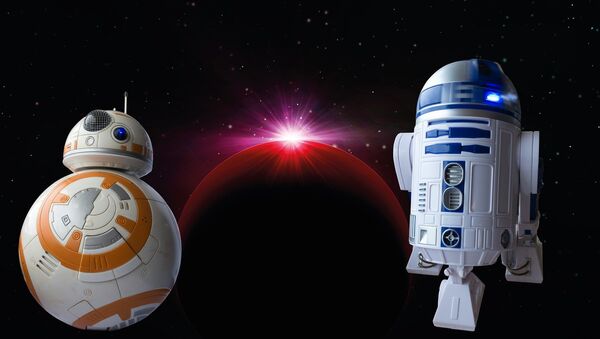And if war in outer space was ever on the cards, the last person you'd want to be facing is the CEO of Boeing, Dennis Muilenburg. According to media reports, he spoke about the future plans of the company at the "What's Next" tech conference in Chicago, and developing the supersonic rocket technology to reach the Red Planet ranked high on his company's ambitions list.
It comes as no surprise however, as Boeing have been involved in the commercial space industry for decades and were also the company contracted by NASA during the first missions to the Moon.
Remember this photo? Meet Vito Neal, the @Boeing welder working inside that massive fuel tank for #NASASLS: https://t.co/4MDdil5QKk pic.twitter.com/3pAcXRHo2t
— NASA_SLS (@NASA_SLS) September 30, 2016
Mr. Muilenburg believes it will once again be rocket technology developed by Boeing that will take the first humans to Mars and based on their current Space Launch System partnership with NASA, it's quite likely this is the project he is referring to.
Welding is complete on the largest cryogenic fuel tank for a rocket in the world that will help power #NASASLS: https://t.co/z2aJQcxRjm pic.twitter.com/xIEctRJbYK
— NASA_SLS (@NASA_SLS) September 30, 2016
If an egotistical Star Wars style rivalry was to ensue between Space X and Boeing, it could certainly be seen as healthy corporate competition. After all, both company CEOs are well-versed on the dynamics of commercial competition, breeding excellence on the ground, thus something similar in outer space simply makes it that much more exciting for everyone else watching.
So who will be Darth Vader and who is Luke Skywalker?
First development tank for Mars ship pic.twitter.com/dF5tZkldUb
— SpaceX (@SpaceX) September 27, 2016
Well Boeing is certainly closer to the archetype father figure of space exploration alongside their partnership with NASA's billion dollar plus funding pot. This leaves Elon Musk's SpaceX as the new maverick on the block and so equivalent to the self-made, estranged son, much like the Luke Skywalker of space commerce.
A Million Humans Could Live on Mars By the 2060s https://t.co/d0nlk1xfOl via @NatGeo
— Elon Musk (@elonmusk) September 27, 2016
SpaceX will be likely to welcome any healthy competition to their recently unveiled plans and it may make Elon Musk's revelations on Twitter that much more exciting too.
Whatever happens, with such heavyweight commercial competition focused on the next frontier of space travel, it's sure to make the strides to Mars that much more greater for mankind.



